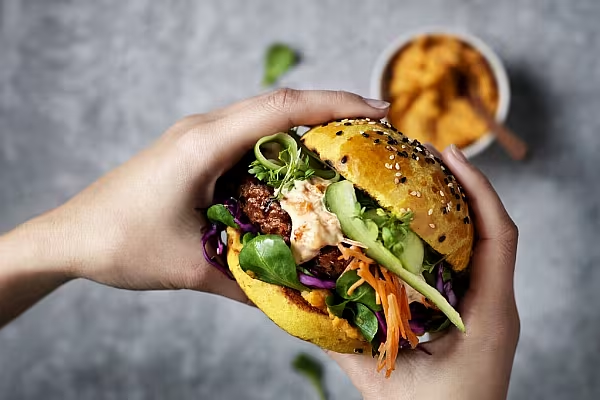With plant-based sales falling, suppliers need to ask if they are tapping into a need state from both shopper and retailer viewpoints.
The news that sales of meat-free products are falling poses a challenge to suppliers in the category that they should address by tapping into a need state from both shopper and retailer points of view.
That’s the message from FMCG and retail capability development specialists Bridgethorne after data revealed that sales of meat free products fell by £38.4 million (€44.98 million) in the UK in 2023, making it one of the worst-performing grocery categories.
The cost-of-living, the ultra-processed nature of some of the products, as well as concerns over taste and texture are among the factors said to be affecting the category.
Value Priorities
“We all know that, when the cost-of-living crisis hit, a lot of the of health benefits that consumers were looking for went out the window, because prices and affordability went higher up the hierarchy than the need to be sustainable,” explains Mark Hermsen, senior capability consultant at Bridgethorne.
With this in mind, any supplier response to a decline in the category must start with the shopper.
“There will always be certain people who like meat, but maybe want to eat less of it," says Hermsen. "This means the category isn’t necessarily focused on purely vegan consumers. But the drive to essentially replicate the look and taste of meat has come across as a little too processed, whereas people still want to make healthy, natural meals that don’t include meat.”
'Well-Developed Areas'
So, the challenge for the supplier and the retailer is how to add value to a category that is on the surface, declining?
“Sales of these products have been falling massively, but it doesn’t mean the whole category is under threat. There are very well-developed areas in plant-based, like milk alternatives, which prove that shoppers remain receptive to the right products. Suppliers need to ask themselves frankly whether their products are adding value to the category, in terms of tapping into that need state as well as from a commercial point of view.
"That means proving the credentials of your products – do they use natural ingredients, for example, like soya to replicate flavours. because taste is paramount? Is it something pleasant that people want to eat? It sounds obvious, but it feels as if this has almost gone under the radar.”
Price, however, remains important, Hermisen adds, as "products must be price competitive within the pyramid. If you're bringing something into the category, it must be more than just relative to other plant-based products. Are consumers going to be prepared to pay five pounds for something plant-based compared to three pounds for a piece of meat. That’s the challenge.”
Understanding The Category
In addition, suppliers, he says, need to be brutally honest about their own position within the category.
“There are questions suppliers need to ask themselves. How big are they? What is their share of the category? Because it might be that the category is in decline, but they might still have a very high share of that category. So evaluate the category. Start with the total category, what is it worth, is it in growth or not? Then go under the category to ask who the key players are? Which are the key brands? Which ones are in growth and what's the reason for them being in growth or decline?
“There's a whole number of reasons why certain brands are more popular than others. Some are very well-established brands that have been around for a long time; that have a high amount of consumer data and a big consumer base. So, then it's about understanding your consumer base: who are your brand loyals?
"It’s also worth mentioning that there is a huge variety of meat-free products, including soy, fungus, and jackfruit. And you need to know which types are in growth because it’s not just about the brand but about the product itself, as some answer specific shopper needs.
“Maybe you’re in growth but not bringing in new people to the category, new people into the brand. So, are there consumer measures to understand and look at purchase frequency? Is it price that's too high? Are people switching to different brands within the category or outside?
"The same rationale applies to private label with many shoppers trading down to private label to manage budgets. Is it because there are certain vegan or vegetarian products that are cheaper or are people just buying less? Promotional strategy is also important, not least whether the promotional mix is right.
"If everything is declining, then you're in a bad position. But if you can analyse and find positive trends within the category, you can switch and move to tap into the areas that are still growing and adapt. All is not lost.”














